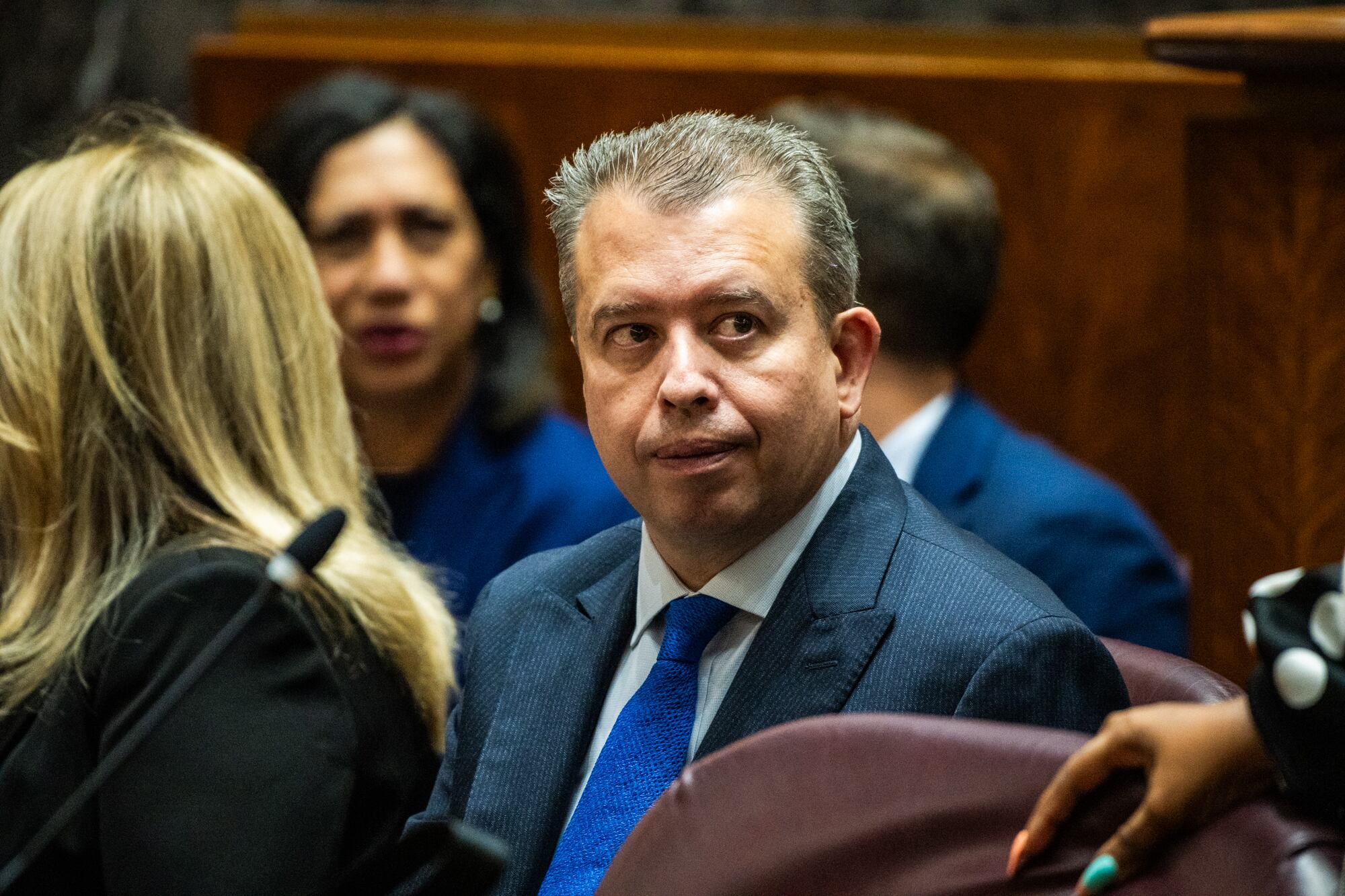Sign up for Chalkbeat Chicago’s free daily newsletter to keep up with the latest education news.
The Chicago school board is pushing district CEO Pedro Martinez to quickly wrap up contract talks with the Chicago Teachers Union.
In a letter sent Friday obtained by Chalkbeat, board members demanded “a fully executed contract in the coming days” — an extraordinary ask given that the two sides remain far apart on key issues and are gearing up to bring in a neutral fact-finder to assess the district’s financial situation and the potential impact of union proposals in December.
Board members wrote to Martinez to speed up the negotiations the same day the union sent the board a letter asking them to put pressure on district administrators to settle. The talks have been underway since April.
Mayor Brandon Johnson, a close CTU ally, appointed the seven-member board in October after the entire previous board stepped down amid pressure to fire Martinez.
The union has said its package of proposals will help the district meet the goals of a five-year strategic plan it approved earlier this fall — a sentiment the school board echoed in its letter to the schools chief. CPS officials have countered that a district facing ballooning deficits cannot afford to commit to a major expansion in staffing and other investments the union is seeking.
Some aldermen and board members elected earlier this month have called on the current board members not to take any consequential actions until the new hybrid 21-member board is seated in January. But the board rejected the plea to “sit on our hands” in its letter to Martinez.
“Let’s reach a swift settlement so that our school communities and educators may gain peace of mind and so that our district leadership can redirect capacity taken up by bargaining, to improve our schools and student outcomes, as soon as possible,” board members wrote.
Member Debby Pope, who worked for the teachers union until this past summer, did not sign the letter.
The teachers union, which last week also called on Johnson to intervene in the talks and held a downtown rally in support of its proposals, wrote school board members decrying a letter to families and a press briefing that district leaders held last week. On both occasions, the district said that the union’s demands would add about $10 billion in costs over the contract’s four years. But union officials argued that they have since narrowed down and revised their proposals, resulting in smaller costs.
The bargaining has been one issue that spurred a clash between Martinez and Johnson, leading to months of CPS turmoil — and a push to oust the CEO. The schools chief and mayor have disagreed over how to pay for the cost of the contract, with Martinez and the former largely Johnson-appointed board arguing it would be irresponsible to take out a loan and add to the district’s significant debt burden.
Reema Amin contributed to this report.
Mila Koumpilova is Chalkbeat Chicago’s senior reporter covering Chicago Public Schools. Contact Mila at mkoumpilova@chalkbeat.org.






